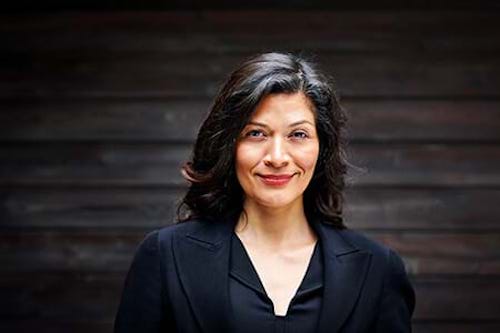The secret that most women don’t know about menopause and the years afterward is that it can be the most enlightening, satisfying and passionate time of your life. Before you scoff at this idea, consider the freedom that goes along with being in menopause. You can use this liberating time to finally release old patterns and habits that you no longer need.

Once you’re in menopause, you can finally let go of the hormonal ups and downs that marked the other stages of your life. We say a woman is in menopause if she’s gone 12 months without a period. And while that seems simple enough, it’s good to know exactly what it’s like to be in menopause, and what to expect in the following years.
Why it can be hard to know when your periods are over for good
For many women, it’s difficult to calculate exactly when they had their last period because they don’t know it was the final one until 12 months later. Some women hope that this month’s bleeding is the last, but then they have another period several months later and have to start counting all over again.
Aside from transitioning into menopause naturally as described above, some women have their ovaries removed surgically. Then they are suddenly considered post-menopausal because there is no chance they will have another period. But women who stop having periods during chemotherapy might resume having them after treatment is over. Even if treatment causes periods to stop for a whole year, most doctors do not consider a woman to be post-menopausal without checking her follicle-stimulating hormone (FSH) levels.
Women taking any type of hormone replacement therapy (HRT)— even if they haven’t had a period in 12 months — may not necessarily be post-menopausal. That’s because once they stop HRT, they usually start having some of the symptoms of menopause again.
Since the menopause experience is different for each woman, post-menopause has many variations too. There is a wide range of possible menopause symptoms, related diseases, and quality of health. Some women get very few hot flashes. Others have night sweats into their 70s, long after their periods have stopped.
We don’t even know when women will stop having hot flashes because there are too many variables to be accurate.
Being post-menopausal and what it means to women
Are you considered post-menopause until you die? Yes, but you’re also technically post-puberty and post-partum. The difference is that these other life stages have natural endings because a new one begins.
So what is post menopause — the new stage after menopause? It can be a long and very interesting time. Maybe it’s better not to worry about labeling it and more important to understand it better so we can make the most of post-menopause and have a little fun at the same time.
When we hear the phrase “midlife crisis,” we tend to think of men rushing out to buy motorcycles or little red sports cars. But this same time of life for women is often defined by hot flashes, weight gain, and a plunging sex drive. Ugh!
But what do both sexes discover at midlife? Both will find out quickly that the insecurity and urgency we feel at middle age are just part of a transition. While both men and women may reexamine their values and try to find more meaning in life, it’s the journey that’s important and the trip is far from over.
Women who’ve been through menopause know that it brings many benefits along with its changes. The negative side effects of menopause and how long menopause lasts are heavily emphasized while the joys and pleasures of post-menopause are barely mentioned. And that’s unfair to women.
Earlier generations of women did not usually talk about their bodies, let alone the ins and outs of their periods. Some famous women have written about their experiences of menopause or post-menopause in autobiographies but those were exceptions.
Today, women are learning and sharing what they know about menopause and health, and it’s making a difference in the overall experience for all of us.
Are there really benefits to post-menopause?
Plenty of things change for the better after menopause. It’s the end of heavy bleeding and worries about unplanned pregnancy. Plus you can wear white pants again!
If you’ve had menopause symptoms, they’ll begin tapering off. If you have children, they may have moved out of the house and onto their own life pursuits. Even if you’re still working, you’ll have more time to spend on yourself. You could potentially go back to school or take a class in art or music, or volunteer in a meaningful way.
The possibilities are endless. Some of the post-menopausal women we know have used this special time to open restaurants, start internet companies, become teachers, go to medical school, lead churches as pastors, climb mountains, travel for months at a time, and of course, take care of their grandchildren.
Post-menopausal women are a force of nature. We are rediscovering ourselves even as we push through the angst and discomfort of getting older. And we’re learning to express ourselves as loudly as is necessary to be heard.
Feeling good in post-menopause is as important a goal as any you’ve ever had. You’ve learned how your body works, and what it needs to keep you happy and healthy. Even if you’re still dealing with a few symptoms in post-menopause, your body has brought you safely forward. Now you can finally allow self-confidence to replace your fears.
It’s your turn to take this opportunity and run with it.









